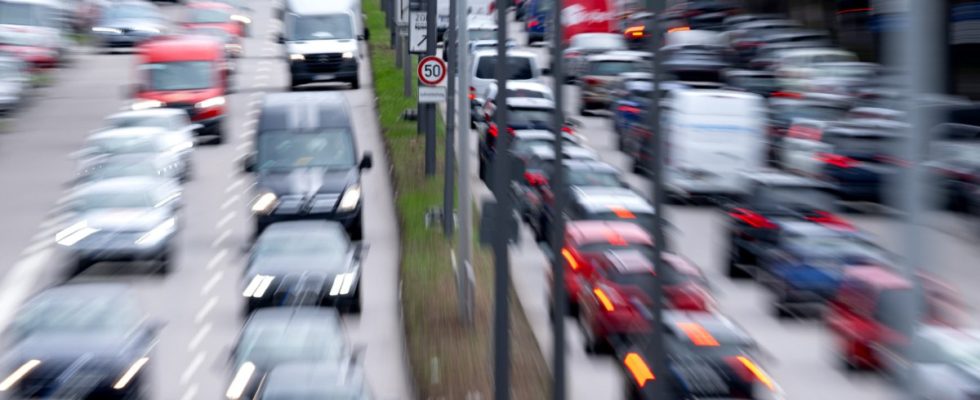It remains to be seen whether the city of Munich will soon have to implement stage two of the diesel driving ban or take even further measures. One thing is certain: you have to do something to make the air cleaner.
On Thursday, the Bavarian Administrative Court heard a lawsuit brought by Deutsche Umwelthilfe (DUH) and the Verkehrsclub Deutschland (VCD) against the state capital for compliance with the limit value for nitrogen dioxide (NO2). A verdict is expected to be announced next Thursday, March 21st. The fact that the decision was postponed is due to a missing report from the State Office for the Environment, which already exists as a draft but was only available to the court and the plaintiffs in a summary. The document, which is more than 40 pages long, deals with further measures for 2024 and beyond. It should be submitted before the verdict is announced.
The paper lists several scenarios for air pollution control, including that the city could also impose a ban on diesel cars on the Middle Ring between Georg-Brauchle-Ring and the A96 motorway, allowing fewer exceptions than before. The different scenarios envisage, among other things, bans only for diesel 4 and worse as well as for diesel 5 and worse, each with different amounts of exceptions.
But first the meeting room was about coming to terms with the past: The DUH and the VCD had initially sued the Free State for compliance with the air pollutant limit value. The Free State then handed over responsibility for air pollution control first to the district governments and then to the municipalities. The state capital has inherited the legal dispute, so to speak. At the end of 2022, the parties agreed on a diesel driving ban, which was to be introduced in three stages.
Numerous exceptions, for example for residents, care services or tradesmen
Since February 2023, there has been a driving ban on diesel vehicles meeting the Euro 4 emissions standard in the environmental zone extended around the Middle Ring. Numerous exceptions apply, for example for residents, care services or tradesmen. If the EU limit for NO2 of 40 micrograms per cubic meter of air is breached, a driving ban on Euro 5 diesel should also apply from October, and from April 2024 there should only be exceptions upon request.
However, the city council suspended the tightening of the rule until May of this year with a resolution in September 2023. DUH and VCD didn’t want to accept this and went to court again.
At Thursday’s hearing, city representatives had to hear some critical detailed questions from the court about this decision. Among other things, it was about the forecast for pollutant levels on Landshuter Allee. This predicted an annual average of 41 micrograms, which is why the city council considered tightening the driving ban to be disproportionate. The actual value was then 45, i.e. 12.5 percent above the limit. The plaintiffs called this forecast unrealistic from the start, and the court also agreed. In order to comply with the limit, the exposure from September to the end of the year should have been a maximum of 34 micrograms.
A 300 meter long bus lane had almost no effect
The court was also not convinced by the assumptions about the composition of the vehicle fleet. When making the forecast, the city assumed a “Munich fleet” consisting of more modern and therefore cleaner cars than the national average. The introduction of a 300 meter long bus lane had almost no effect, except that the traffic rolled three meters further away from the measuring point, which had an impact on the measurement result. The court also wanted to know exactly why, according to the forecast, there should be fewer cars on the road per day: 113,000 instead of 117,000 a year before. A representative of the city explained that they had previously looked at the so-called Traffic volume map 2022 the state capital, then on more recent measurements using detectors.
It is the details that are important for the court to reach its verdict; after all, several small measures together can push pollution levels down. The court still wants to deal with this. The document will then be presented to the city council at the end of April for a decision on how to proceed.
The city representative’s suggestion to the plaintiffs to deal with the submission together until then and not insist on any judgment was rejected by plaintiff’s lawyer Remo Klinger. After the city council broke a contract, he no longer trusts it.
The presiding judge Gerda Zimmerer said at the end that she was happy about the settlement at the time. Now she hopes that the city will come to a good solution.

